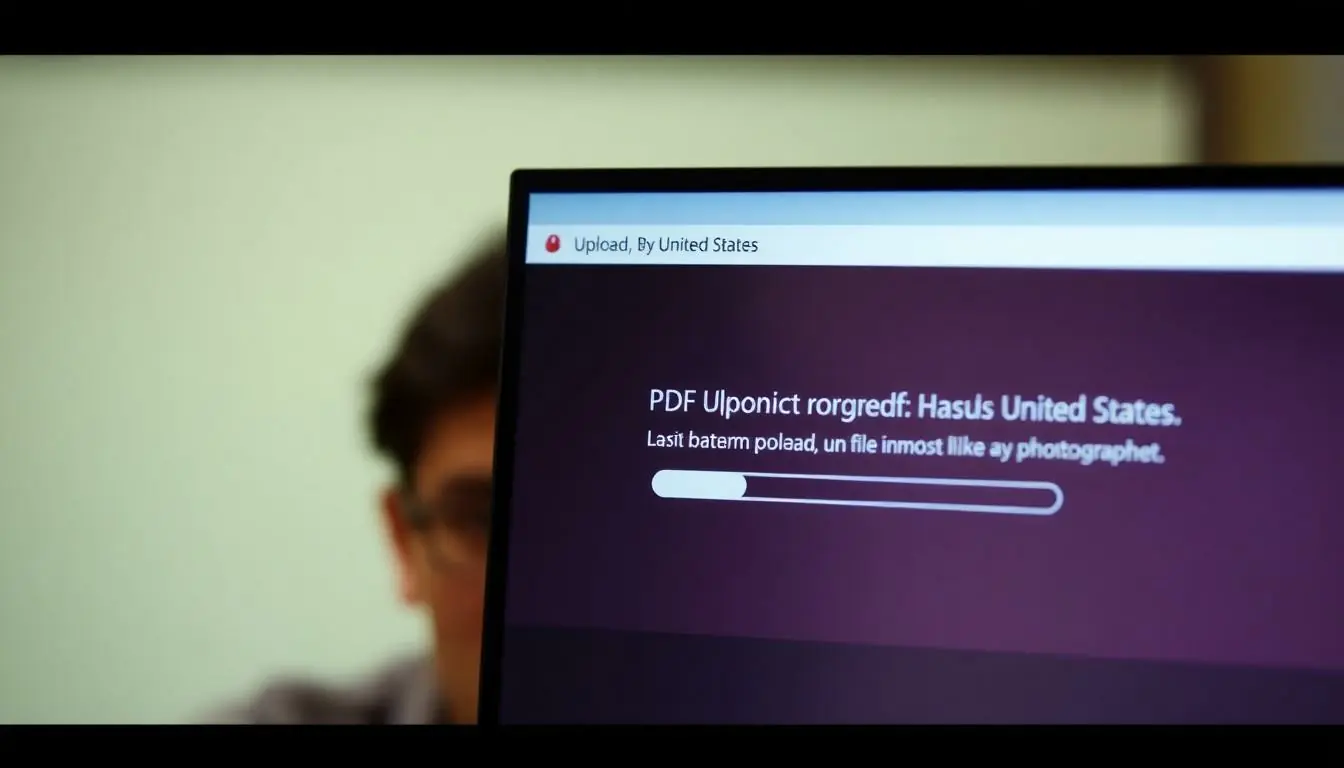Ever found yourself staring at your screen, desperately trying to upload a PDF to ChatGPT, only to be met with the digital equivalent of a shrug? You’re not alone. Many users have faced this head-scratching dilemma, wondering if their PDF has gone on a vacation or simply decided to play hard to get.
Table of Contents
ToggleUnderstanding ChatGPT and PDF Uploads
ChatGPT offers advanced natural language processing capabilities but lacks the ability to directly upload files like PDFs. Users often face confusion regarding this limitation, which can lead to frustration.
What Is ChatGPT?
ChatGPT is an AI language model developed by OpenAI. It generates human-like text based on prompts. Users can engage with it through conversational interfaces, gaining insights and answers quickly. While it excels in text responses, it doesn’t support file uploads or processing tasks involving documents directly.
The Importance of PDF Files
PDF files hold significant value in various professional and personal contexts. They preserve formatting and ensure document integrity across devices. Many businesses rely on PDFs for contracts, reports, and presentations. The ability to share information seamlessly increases productivity, but users must remember that ChatGPT doesn’t process these file types.
Common Reasons for Upload Issues

Users encounter several obstacles when trying to upload PDFs to ChatGPT. Understanding these reasons helps clarify the limitations of the platform.
File Size Limitations
Upload issues often stem from file size restrictions. Users must ensure their PDF files do not exceed the maximum size limit, typically around 10 MB. Larger files trigger error messages, preventing upload completion. Checking the file size before attempting to upload preserves time and enhances user experience. It’s advisable to compress files or split them into smaller segments if necessary. Ensuring compliance with size requirements significantly increases the likelihood of a successful upload.
Unsupported File Types
ChatGPT supports only text input, causing confusion when users try to upload PDFs. This model cannot process files, as it lacks the design for file uploads. Users must convert their documents into plain text or copy relevant content into the input field. Recognizing that ChatGPT processes natural language prompts helps prevent misunderstandings. By using compatible formats, users achieve smooth interactions with the AI. Understanding this limitation is essential for effective use of ChatGPT.
Troubleshooting Upload Problems
Uploading issues can frustrate users when trying to use ChatGPT. Connectivity problems or file errors often lead to confusion during the PDF upload process.
Checking Your Internet Connection
Ensure the internet connection is stable. Disruptions could prevent successful interactions with ChatGPT. Testing the connection using a speed test can identify issues. Wi-Fi signal strength can also affect performance. Restarting the router or switching networks sometimes resolves these problems. Connecting directly via an Ethernet cable often improves reliability. Checking other websites or services may provide additional context about connectivity issues. If problems persist, contacting the internet service provider might help.
Verifying PDF File Integrity
Confirming file integrity is essential for troubleshooting upload problems. Corrupted PDFs can cause errors during attempts to interact with ChatGPT. Opening the file in a PDF viewer can help assess its usability. Ensuring the file displays correctly without errors indicates it’s intact. If issues arise, consider regenerating the PDF from the source application. Using file repair tools may restore damaged documents. Converting the PDF to plain text format can also facilitate easier handling with ChatGPT. Finally, keeping multiple copies of important files ensures access despite potential upload complications.
Tips for Successful PDF Uploads
Users face challenges while uploading PDFs to ChatGPT. Successful uploads require attention to file size and format.
Reducing PDF File Size
Compressing PDF files is essential for smooth uploads. Many platforms offer free tools that minimize file size without sacrificing quality. When a PDF exceeds 10 MB, it typically triggers error messages, hindering the upload process. Users can utilize these compression tools to ensure their files meet requirements. Splitting larger documents into smaller segments also enhances upload potential. Regularly checking file sizes can help maintain compatibility during subsequent uploads.
Converting PDFs to Compatible Formats
Converting PDFs into plain text formats allows users to interact with ChatGPT seamlessly. Tools are available that can transform documents from PDF to TXT or DOCX formats. Each conversion option provides an avenue for compatibility, enabling users to extract relevant content easily. Copying and pasting text directly into the input field also works well. Understanding that ChatGPT processes text rather than files makes this conversion a vital step. Emphasizing text-based interactions greatly improves the overall experience with the AI.
Navigating the challenges of uploading PDFs to ChatGPT can be frustrating. Users must remember that the platform doesn’t support direct file uploads. Instead, converting documents into text formats is essential for effective interaction.
Addressing file size and format issues can significantly enhance the experience. By compressing larger files or splitting them into smaller segments, users can avoid common upload hurdles. Ensuring a stable internet connection and verifying file integrity are also crucial steps to prevent confusion.
Ultimately, understanding these limitations and adapting accordingly allows users to make the most of ChatGPT’s capabilities while minimizing frustration. Embracing text-based inputs will lead to a more efficient and satisfying experience.






